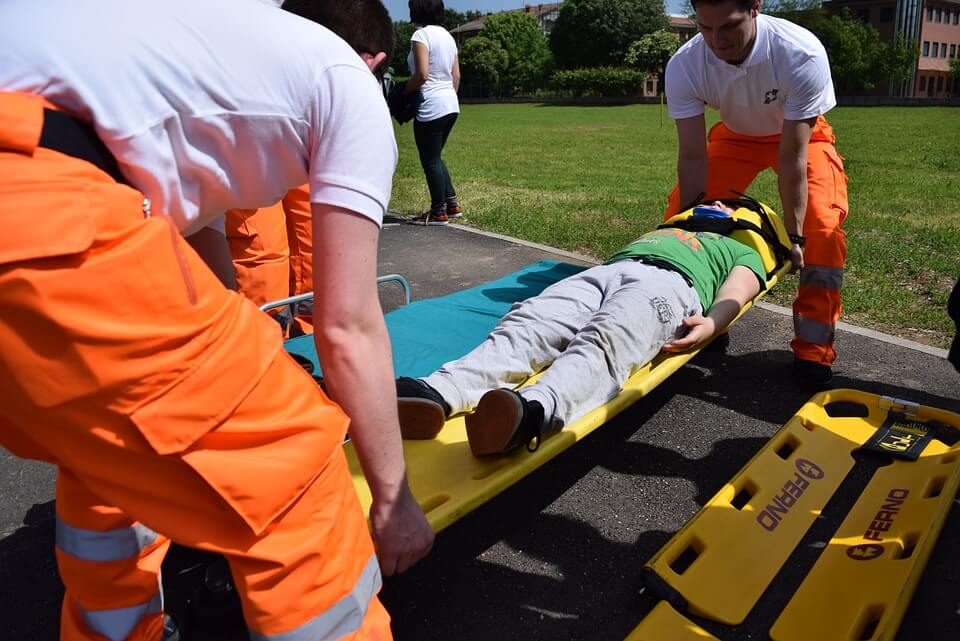Why Do I Need a Medical Power of Attorney?
Most people don’t want to think about what will happen to them if they are in an accident or become very ill and incapacitated. Unfortunately, not preparing for such unthinkable situations can lead to untimely medical care and more stress than necessary on loved ones. Whether you live in West Virginia (WV), Kentucky (KY), or Ohio (OH), having a medical power of attorney (MPOA) in place can help alleviate such a tragic situation.
Who will make sure you are taken care of if you cannot make medical decisions for yourself?
If you don’t have a medical power of attorney, it may be no one!
A medical power of attorney is a vital document to have in place no matter where you live. This document identifies who you would like to make health care decisions on your behalf should you become incapacitated or non-communicative.
Any number of events can lead to a person such an unfortunate state. An accident, a blood clot, a brain bleed, systemic infections, organ failure and long-term diseases such as Alzheimer’s and dementia can cause a person to become incapacitated or non-communicative. After being deemed medically incapacitated, a person can no longer make medical decisions for himself or herself. Thus, it’s important to designate a representative to make decisions for your health care through a medical power of attorney.
So what happens if you don’t have a medical power of attorney in place when you are declared medically incapacitated?
Here’s the risk: With no MPOA, your doctors and nurses will not be able to discuss your health status with your loved ones. Due to privacy laws, health care providers need permission to discuss any kind of health care status or personal information of a patient with a third party. If you are not able to give this permission yourself due to a medical condition that has deemed you incapacitated or non-communicative, your health care team cannot inform your loved ones of your care or prognosis or ask for guidance on medical decisions that you’re unable to make.
Having a medical power of attorney in WV, KY, or OH will allow your medical caregivers to keep your designated representative informed of your condition and consult with your representative to make the medical care choices to provide you with the best possible health outcome. Not having this in place means that important medical decisions and care could be delayed. Delayed medical care, because of the failure to have this simple document in place, can lead to poor or terminal outcomes. It’s so easy to avoid a negative outcome.
How much power does your designated representative have over your healthcare once you complete a medical power of attorney?
If you are communicative and of sound mind, you will remain in control of all of your health care decisions after you sign your MPOA. The person you choose as your representative will not be able to make any of your health care decisions nor will he or she be able to override your decisions as long as you are communicative and able to make these decisions on your own. The medical power of attorney is activated ONLY if you are deemed to be medically incapacitated.
You also have the capability to outline what kind of care you would like to receive should you become terminally ill or in a persistent vegetative state. A living will can provide your medical power of attorney with instructions about your long-term care wishes in such a situation.
A living will is different from a medical power of attorney. While these are two different legal documents, they work together to ensure that you get the care that is best for you and that is in accordance to your health care wishes. To learn more about the complementary nature of living wills and MPOAs, please review my colleague’s blog, WV Estate Planning 101: Medical Power of Attorney vs Living Will.
How will your medical caregivers know who you have chosen as your medical power of attorney?
You can give a copy of your executed medical power of attorney to your primary care provider and ask him or her to keep the document as part of your medical record. When this document is part of your medical record, future caregivers can have access to that document as an essential part of your continuum of care.
You should also a copy of your medical power of attorney to the person you have chosen to be your medical representative. Your representative can also provide it to your medical caregivers as needed.
Are you ready to discuss who will make health care decisions for you if you become incapacitated?
Every state has different statutes guiding medical power of attorney documents, so it is important that you have a power of attorney that is tailored to the state of your residence. If you live in West Virginia (WV), Kentucky (KY), or Ohio (OH), contact me, Anna M. Price, directly by calling (866) 617-4736 or completing our firm's Contact form to discuss this vital document. I'll guide you through estate planning law to make sure your wishes are respected.


